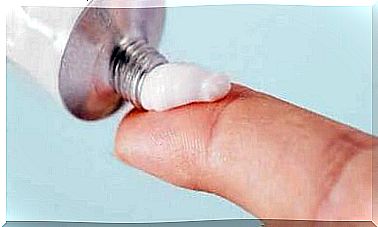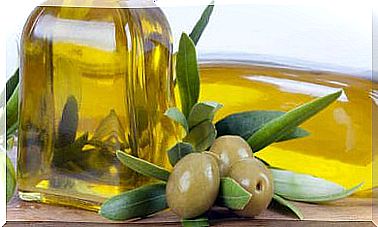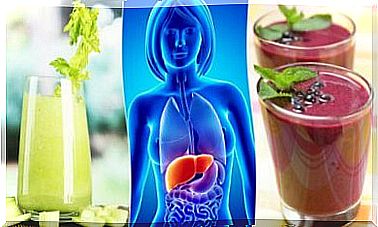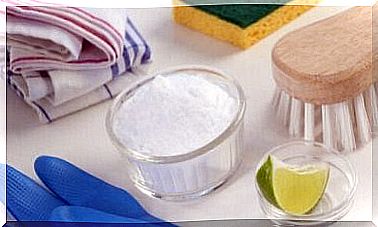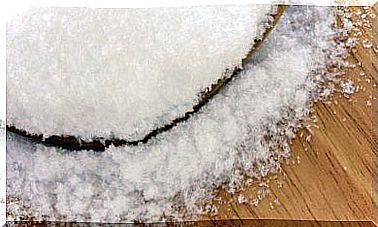5 Remedies To De-inflame The Abdomen From The Excesses Of Christmas
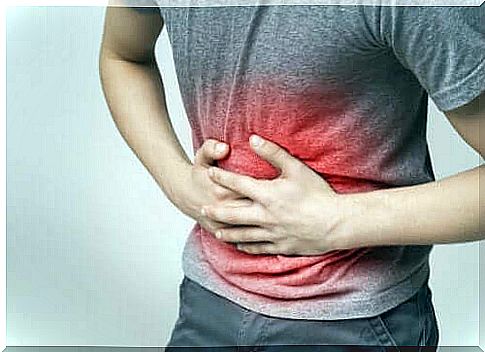
Abdominal inflammation is one of the main consequences of the excesses committed during Christmas. Due to a bad combination of foods, heavy dishes and excesses, digestion becomes slow and the abdomen becomes swollen. De-inflaming your abdomen is the best way to get comfortable, light and healthy again.
But how to do this? What can you do to deflate your abdomen and improve your digestion on these dates? While it’s important to make adjustments to your diet, it’s also good to try some natural remedies that, because of their properties, help with discomfort. Discover them!
Remedies to deflate the abdomen
At Christmas time, it is very common to experience discomfort associated with indigestion. Therefore, bloating and gas are usually not a reason for a doctor’s visit. However, it is important to be aware of other symptoms, such as prolonged diarrhea or fever, as they usually correspond to food poisoning and require professional attention.
Knowing this, let’s detail some natural remedies that can deflate the abdomen, as well as relieve pain, heartburn and other stomach symptoms common on these dates. Obviously, they should be used sparingly, taking into account that they can also cause side effects if taken in excess.
1. Warm water with lemon and baking soda
A combination of baking soda and lemon can help control excess acidity. In fact, a study published in the International Journal of Pharmaceutical and Life Sciences notes that this mixture produces carbonic acid, which can help reduce gas and indigestion. Its consumption in small amounts helps to deflate the abdomen.
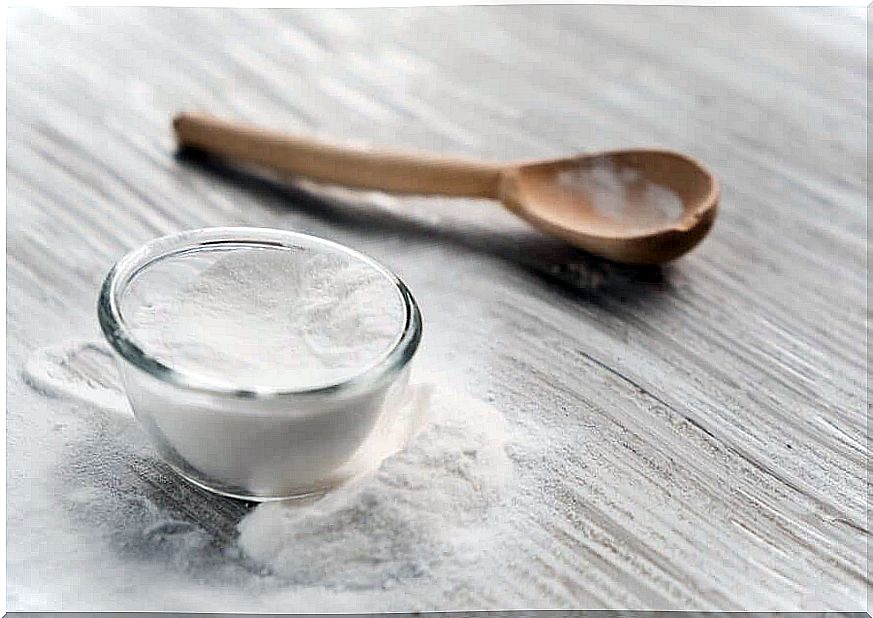
Ingredients
- 1 cup of warm water (200 ml)
- the ½ lemon juice
- ½ teaspoon of baking soda (2 g)
Preparation
- Add the warm water to the lemon, then add half a teaspoon of baking soda.
- Mix the ingredients and wait for the effervescent effect to wear off.
mode of consumption
- Consume the drink 30 minutes after eating or when you experience inflammation.
2. Cinnamon infusion to deflate the abdomen
Cinnamon’s digestive properties not only prevent abdominal swelling, but also prevent stomach upset and acidity after eating.
As noted in a study published in Evidence-Based Complementary and Alternative Medicine , this spice has antispasmodic, anti-inflammatory and antioxidant effects that, together, reduce the gastrointestinal discomfort that tends to occur on these dates.
Ingredients
- Cinnamon powder (5 g)
- Water (250 ml)
- Honey (25 g)
Preparation
- Add a spoonful of powdered cinnamon to a cup of hot water.
- Cover the drink, let it sit for 10 minutes and, before drinking it, sweeten it with honey.
mode of consumption
- Take the infusion when you experience stomach upset or inflammation.
Note: Do not consume too much cinnamon as it can be irritating to the stomach lining. Avoid it in case of ulcers.
3. Anise, vervain and melissa drink
Combining the properties of these digestive herbs we can obtain a home remedy against heavy digestions that inflame the abdomen. Its compounds prevent the formation of gas in the intestine and reduce the feeling of a heavy stomach and pain.
According to data published in ISRN Pharmaceutics, anise has carminative and anti-inflammatory properties that are helpful in de-inflaming the abdomen. In addition, it has a mild anti-ulcer and laxative effect.
In turn, verbena has been used in traditional medicine as an ally against stomach swelling. However, there is no evidence to support this fact. Meanwhile, a study published in Evidence-Based Complementary and Alternative Medicine suggests that melissa is antispasmodic, digestive and carminative.
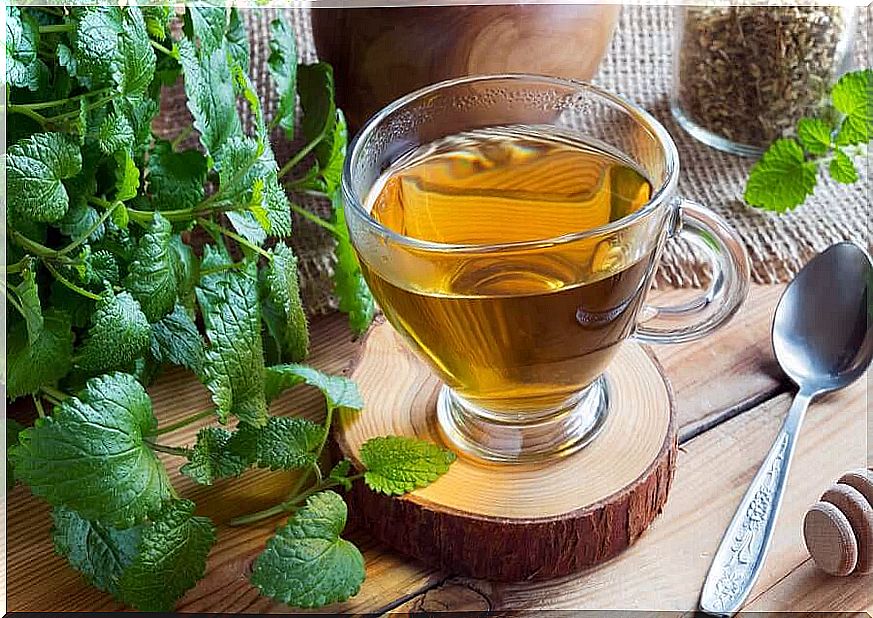
Ingredients
- Anise seeds (5 g)
- Vervain (5 g)
- Melissa (5 g)
- Water (250 ml)
Preparation
- Soak the plants in a cup of boiling water and cover the drink.
- Let stand 15 minutes and strain.
mode of consumption
- Take the infusion 2 times a day, until the abdomen deflates.
- Consume preferably after eating heavy dishes.
4. Infusion of fennel seeds
According to information published in BioMed Research International , fennel seeds stand out in natural medicine for their carminative, anti-inflammatory and calming properties. They are ideal for controlling indigestion caused by heavy foods. In addition, they contain beneficial vitamins, minerals and antioxidant compounds.
Ingredients
- Fennel seeds (5 g)
- Water (250 ml)
Preparation
- Add a teaspoon of fennel seeds to a cup of boiling water.
- Cover the drink and let it sit for 10 minutes.
mode of consumption
- Take the infusion 30 minutes after eating.
- If inflammation persists, consume 3 times a day.
5. Ginger, lemon and honey drink
Another traditional remedy for a heavy stomach feeling is ginger. This anti-inflammatory and analgesic spice reduces abdominal inflammation and prevents discomfort such as gas and nausea.
Although evidence is still limited, a recent study published in Food Science & Nutrition indicates that ginger has a carminative effect, decreasing pressure on the lower esophageal sphincter, minimizing acidity.
Among other things, its moderate consumption helps to combat intestinal cramps and serves as a preventative for dyspepsia, flatulence and bloating. Let’s look at how to prepare an infusion.
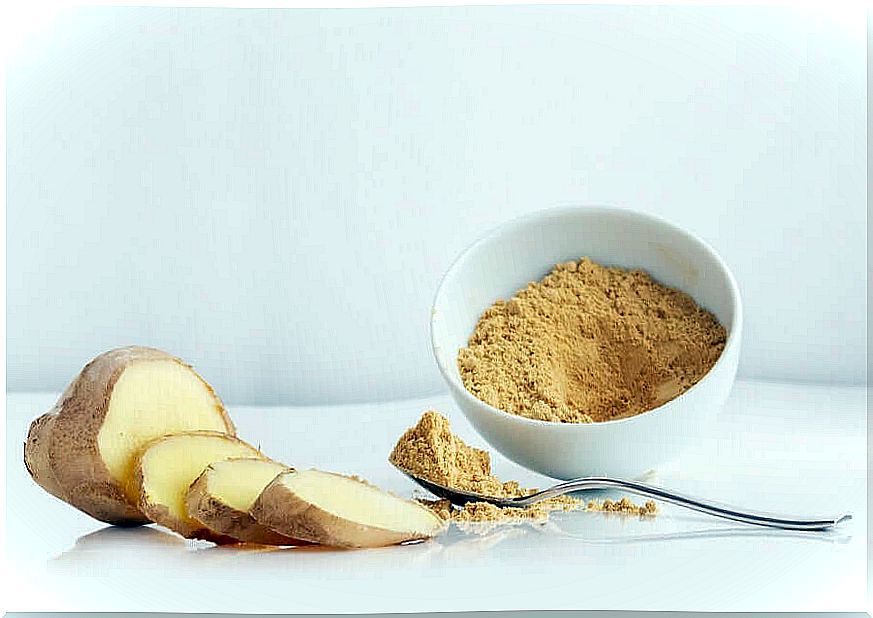
Ingredients
- Grated ginger (5 g)
- Water (250 ml)
- the ½ lemon juice
- Honey (25 g)
Preparation
- Add a teaspoon of grated ginger to a cup of water and bring to a boil.
- When it comes to a boil, reduce the heat, and leave it for another 2 minutes.
- Turn off the heat, let the drink stand for 10 minutes and then strain.
- Add the juice of half a lemon and sweeten with a tablespoon of honey.
mode of consumption
- Drink the tea 30 minutes after eating or when you feel any signs of indigestion.
- Take 2 times a day until you feel relief.
What else can you do to reduce inflammation in your abdomen?
Using the remedies mentioned can help against inflammation of the abdomen around Christmas time. However, the ideal is to adapt the diet so that this uncomfortable symptom is not generated. Reducing excesses and avoiding overly large dishes is the key to not getting a bloated abdomen.
On the other hand, it is important to be aware of other symptoms, because at Christmas there are also cases of food poisoning, which require another type of attention. If the discomfort is great, it is best to see a doctor for other treatment options.

